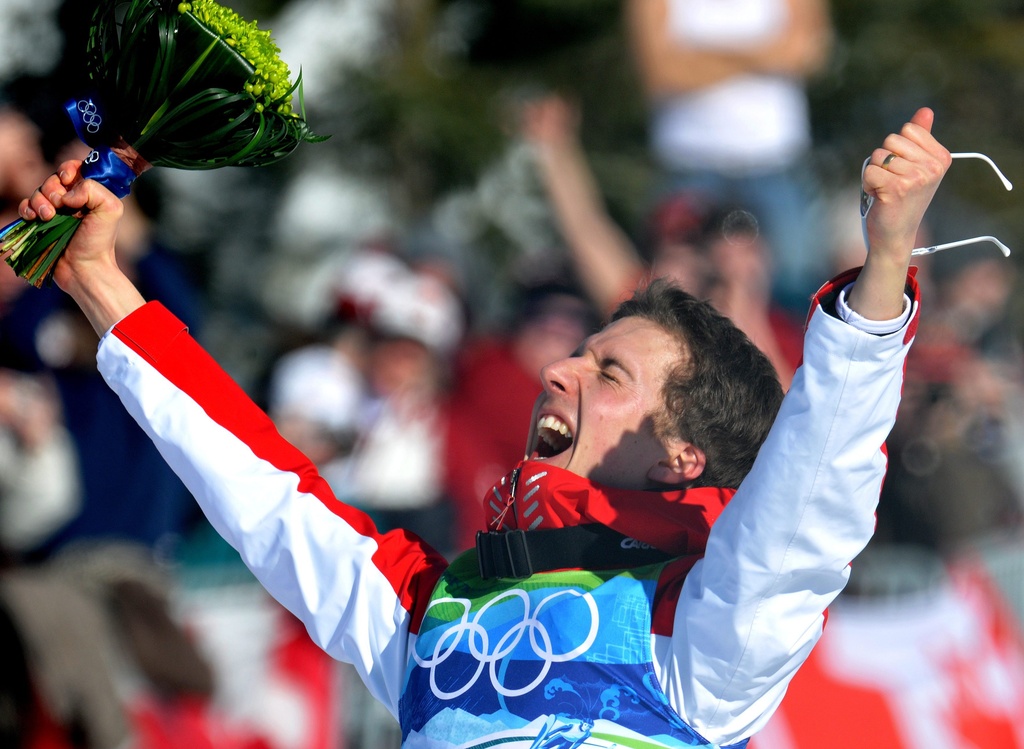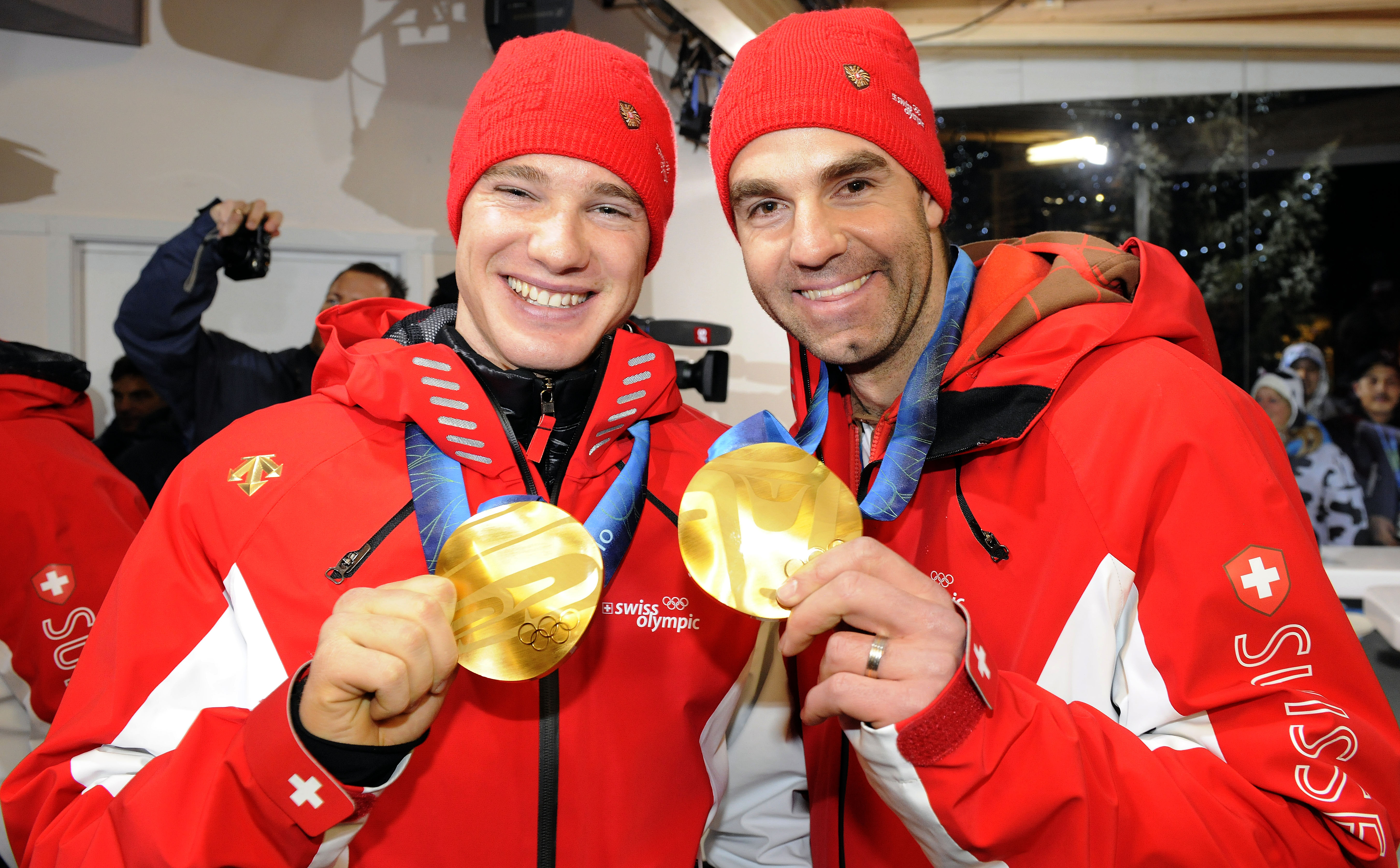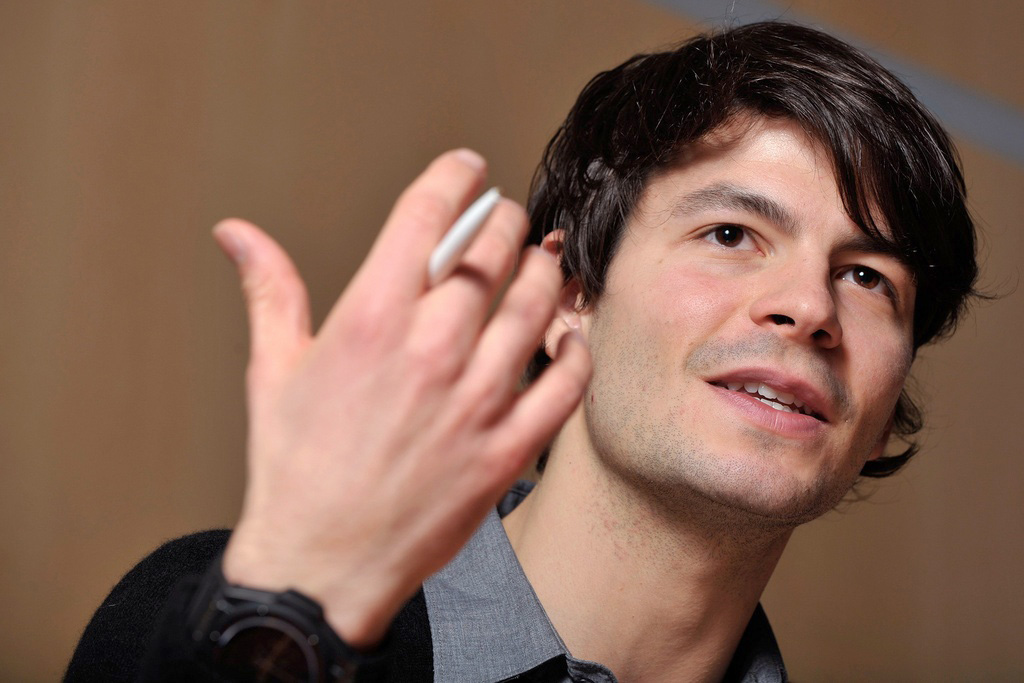Winter Games ends with 10th medal hope dashed

The 2010 Winter Olympics ended on Sunday marking a bittersweet moment for Swiss athletes who won fewer medals than hoped but collected more golds than ever before.
What started on February 13 with the elation of Swiss ski jumper Simon Ammann winning the Games’ first gold medal ended on Sunday with a gut-wrenching loss in the cross country.
These Games, the Swiss seemed to stick to a tradition of quality over quantity and collected nine medals, including a record six gold and three bronze. They needed one more to make the goal of ten.
Cross country skier Dario Cologna had it within his grasp. He’d already won gold in an earlier race and on Sunday was metres away from winning a second medal, this time in the men’s 50km mass start. Coming into the last turn, he crashed. “We are without words,” a Swiss television presenter said. “The disappointment is enormous.”
But it’s plot twists like those that make watching the Olympics so compulsive and an estimated three billion viewers caught at least some of the action. The Swiss were often right in the middle of it.
“I watched with great enthusiasm the wonderful, positive results,” Adolf Ogi, former Swiss sports minister and United Nations’ Special Adviser on Sport, told swissinfo.ch. “I am extraordinarily pleased.”
Fast start
Some of the most memorable moments came early.
Two days after the death of a Georgian luger, the mood swung skyward as ski jumper Ammann soared off the normal hill to add a third gold medal to the two he won in Salt Lake City in 2002. He was so jubilant he leapt over a barrier and hugged Swiss President Doris Leuthard, surprising her as he lifted her off her feet.
The win set him up to become the most successful ski jumper in Olympic history when he captured a second gold medal – his fourth overall – in the large hill contest one week later.
In the men’s downhill on February 16, all eyes were on favourite Didier Cuche, who posted the fastest time during his first training run. But when it counted, teammate Didier Défago leapt ahead to take first place.
Cuche still had a shot and cut a near perfect run. He trailed Défago by just 0.05 seconds coming into the final turn. What looked like a gold-silver sweep for the Swiss turned to disbelief when Cuche crossed the finish line suddenly 0.36 seconds back – leaving him in sixth.
The pressure was on but more good news followed that day. Cologna powered his way to a gold medal in the men’s 15km cross country race by beating Czech favourite Lukas Bauer. He said he’d surprised himself by winning so handily. The nastier surprise would come 12 days later.
Ups and downs
Meanwhile, things were not going so well for ice skater Stéphane Lambiel. The favourite from canton Valais missed a bronze medal in the men’s free skating at just 0.49 points behind third-placed Daisuke Takahashi of Japan.
Lambiel may have said he was “disappointed” with his performance but Russia’s Evgeni Plushenko was arguably the poorest loser. Not satisfied with the silver behind American Evan Lysacek, Plushenko decided to issue himself a medal – a platinum one.
The women’s ski team also struggled with reality, having lost a host of medal hopefuls to injuries before the Games. Fabienne Suter still held strong and produced some of the team’s best results, taking fourth in the super combined and fifth in the downhill. Nadia Styger took sixth in the super-G.
Olivia Nobs of Neuchâtel won the country’s first bronze of the Games in the snowboard cross, bringing Switzerland’s medal tally up to four.
Bad curves
As the Olympics moved into week two the Swiss seemed to lose some steam.
The men’s hockey team lost 2-0 in the quarter finals against the US, while the women finished fifth. Russian-Swiss snowboard hopeful Iouri Podladtchikov missed a medal with a fourth place finish in the half pipe, an event dominated by American Shaun White.
The men’s alpine team also hit some bumps. Cuche slid into tenth in the super-G, further corroding any realistic hardware hopes. Teammate Carlo Janka took eighth, the best Swiss showing. Défago took 15th behind winner Askel Lund Svindal of Norway.
At the Whistler Sliding Centre criticism over the design of the Olympic bobsled, luge and skeleton track continued to mount. On February 19 Swiss driver Daniel Schmid pulled out of the two- and four-man bob events “for safety reasons” after two practice crashes.
In one of those wrecks, Schmid’s brakeman, Jürg Egger, was injured and had to be flown off to hospital. A total of 11 crashes had happened within hours. “Athletes prepare for years for the competition of their life and all of their work is ruined because their safety isn’t assured,” worried head coach Gian Gilli.
The Swiss men’s four-man bob team eventually took sixth.
Back into gear
Things picked up once again as the Games chugged toward the closing ceremonies. Michael Schmid dominated the first Olympic ski cross event, continuing a Swiss tradition of winning new Winter Games events. (The Swiss have won Olympic debut events in ski aerials, snowboard half pipe, snowboard cross and now ski cross).
Janka had a textbook run in the giant slalom to win, while Cuche slipped to 14th. Silvan Zurbriggen squeaked by with a bronze in the super combined – medal number eight.
And then there were the curlers. After thieves broke into the Swiss team’s van and stole their shoes and other equipment, the athletes rallied and focused on their sport.
The Swiss women worked all the way up to a bronze medal match but lost, taking fourth place after China won 12-6. Swiss team captain Mirjam Ott, the only female curler to have two Olympic medals, crumpled that day and, at least statistically, was the worst player on the ice sheet.
Yet all was not lost. On Saturday the Swiss men’s curling team squeaked by the Swedes in a thrilling 5-4 match, earning what would be the last medal for Switzerland, a bronze. Curler Ralph Stöckli summed it up.
“I feel an immense joy,” he said. “Everything finally worked.”
Tim Neville, swissinfo.ch
Operating budget: CAN$1.73 billion
Capital budget: CAN$580 million
Volunteers: 25,000
Journalists: 13,000
Total tickets for sale: 1.6 million
Estimated attendance: 250,000
Estimated TV viewers: 3 billion
Vancouver population: 612,000
Whistler population: 10,000
Whistler population during Games: 55,000
Last Winter Games to be held in Canada: Calgary 1988
BC Place: Home to the opening and closing ceremonies in Vancouver. Seats 55,000.
Canada Hockey Place: Usually called GM Place, the arena in downtown Vancouver is home to the Canucks, an NHL team. Seats 19,300.
Cypress Mountain: Ski area with 53 runs located 30 minutes from Vancouver. Snowboard half pipe, snowboard and ski cross, freestyle and aerial skiing events here. Features half pipe with 6.7m (22 feet) walls.
Whistler-Blackcomb: The busiest ski area in all of North America with more than 2 million skiers a year. About 55 per cent of all Winter Games medals will be awarded in the resort village.
Pacific Coliseum: Short track speed skating and figure skating events. Located in downtown Vancouver. Eight ice resurface-machine drivers have been trained for three years in sport-specific ice prepping. Seats 14,200.
Olympic Villages: Two. One in Whistler and one in Vancouver. Both will be converted into affordable housing once the Games and a Paralympics are over.
House of Switzerland: Two. One at Bridges restaurant on Granville Island, Vancouver. One in Whistler at the Mountain Club on the Whistler Town Plaza.

In compliance with the JTI standards
More: SWI swissinfo.ch certified by the Journalism Trust Initiative















You can find an overview of ongoing debates with our journalists here . Please join us!
If you want to start a conversation about a topic raised in this article or want to report factual errors, email us at english@swissinfo.ch.